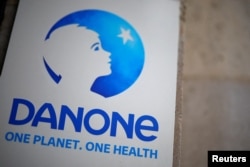As the United Nations celebrates World Water Day on Friday, the risk of water conflicts is growing with the impacts of climate change, the international organization said.
Meanwhile, non-governmental aid agency Oxfam accused multinational companies of “taking” water from poorer countries to increase profits.
In announcing this year’s theme, “Water for Peace,” the United Nations warned that “tensions between communities and countries can increase when water is scarce or contaminated, or when people have unequal access to water.”
“More than 3 billion people around the world rely on water that flows across borders. However, only 24 countries have reached cooperation agreements on all shared water resources,” the UN said. “As the impacts of climate change increase and populations grow, there is an urgent need to unite within and between countries to protect and conserve our most precious resources.”
In Johannesburg, South Africa’s largest city, taps have been dry for weeks, affecting millions of people.
On the outskirts of Soweto, thousands of people queued to collect water in bottles and buckets from tankers carrying water from outside the city.
“This is a serious challenge for my age, a very challenging time, I have to Come here with these 20-litre buckets.” “Sadly, we don’t know when our taps will get wet again.”
Crumbling infrastructure is part of the reason for Johannesburg’s water shortages. But scientists say worsening climate change is causing reservoirs to dry up in South Africa and many other parts of the world.
The United Nations estimates that 2.2 billion people lack safely managed drinking water.
About half the world’s population experiences severe water shortages at least part of the year, with poorer countries in the southern hemisphere the worst affected, scientists from the United Nations’ Intergovernmental Panel on Climate Change say.
Water “grabbing”
In a report released on Thursday, Oxfam accused major global companies of “grabbing” vital water resources.
“The private sector’s plundering and contamination of this resource for profit at the expense of local populations further exacerbates inequality. Droughts exacerbated by climate change affect agriculture and thus the economies of countries that rely on agriculture, leading to Increased poverty, food insecurity and health problems among residents, especially in countries in the Global South,” the report said.
Oxfam accuses rich countries and multinational companies of transferring water shortages to poorer areas by importing water-intensive products such as fruit, vegetables, meat, flowers and bottled water from overseas.
Agriculture uses 70% of water use, including through irrigation systems to support the meat industry and biofuels, the report said.
Oxfam said: “This is part of a neocolonial logic that seeks to satisfy the consumer needs of the North at the expense of the South.”
Its analysis shows the private sector has failed to reduce its impact on water resources.
“Only a quarter of the 350 companies analyzed through the database – accounting for half of the world’s agricultural revenue – claimed they were reducing water use and pollution,” said agriculture and food security consultant Quentin Ghesquiere. Oxfam France told VOA.
Government Regulation
Oxfam also noted that large companies can access water even if local residents face restrictions. It highlights the activities of French multinational food company Danone.
“Danone continues to extract water from aquifers in May 2023 [in France] It’s completely legal, although there are restrictions for local residents. In the same year, the company made profits of almost €900 million and paid dividends of €1.2 billion to shareholders,” the Oxfam report said.
Danone said in a statement to VOA that sustainably managing water is a top priority, adding, “We have accelerated innovation and investment to voluntarily reduce water withdrawals at our bottling plants.”
“Since 2017, we have invested 30 million euros in modernizing our production lines, which will allow us to reduce withdrawals by 17% between 2017 and 2023 while maintaining sales volumes,” a Danone statement said.
The Oxfam report recommends tighter regulation and calls for “ambitious funding for adaptation and universal access to water in developing countries”.
Follow us on Google news ,Twitter , and Join Whatsapp Group of thelocalreport.in















